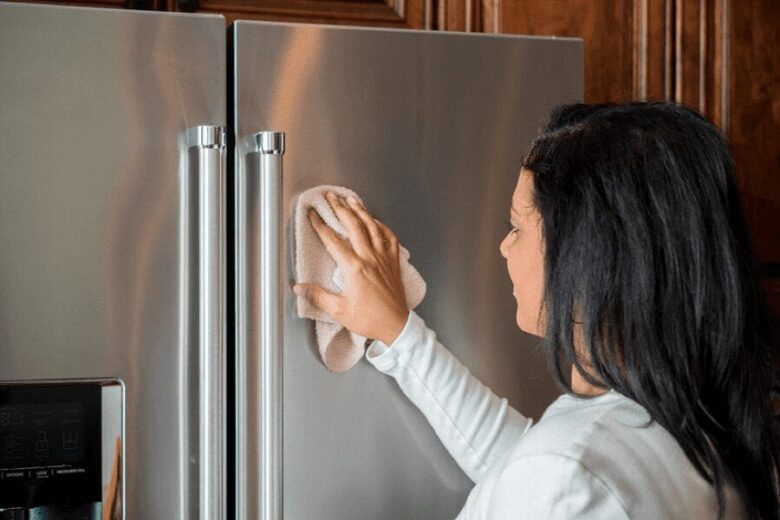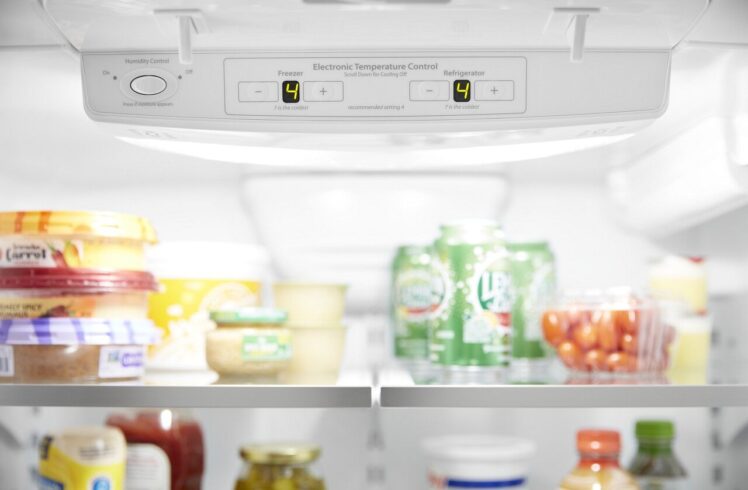A modern refrigerator is a complex but reliable device that is capable of faithfully serving us without breaking down for many years. However, our careless attitude can dramatically reduce its lifespan. Learn a few simple tips that will help you significantly increase the lifespan of your faithful kitchen companion.
Contents
Easy-to-Read Signs of a Malfunctioning Refrigerator
To start, let’s rule out the instance where your refrigerator is already malfunctioning. Here are the five most obvious signs that may indicate a problem:
- too strong or too weak cooling of the refrigerator’s compartments;
- increased noise (hum, knock, vibration);
- icing of the walls of the freezer;
- lighting inside the refrigerator is not on or blinking;
- the appearance of water on the lowest shelf of the refrigerator compartment.
Up to 89% of all problems with home appliances can be solved remotely by an expert repairman. With a dedicated service offered by Home Alliance company, called Remote Assistance, anyone can run technician-moderated diagnostics and remotely fix the identified problem over a simple video call.

Source: topclassactions
Preventive Care Tips to Increase the Lifespan of Your Refrigerator
Several care tips and techniques can help you avoid the problems mentioned above in the first place. Following these essential tips will also significantly increase the lifespan of your refrigerator.
Ensure the correct positioning and spacing
Your refrigerator should not be placed too close to the wall, furniture pieces, or other devices. Usually, a space of 2 or more inches is enough. This is necessary for air circulation around the refrigerator. For the same token, try not to place your refrigerator near a powerful heat source.
Also, don’t “beautify” your refrigerator with an assortment of decorative magnets and sticky notes, especially on the sides of the device. They contribute to the excessive heat buildup inside the fridge. Such simple rules are especially critical for refrigerators with an external condenser on the outer rear wall (black coils).
Clean the condenser coils
The basic and most important rule is that the cleaner the condenser coils, the better your refrigerator works. They are responsible for dispersing hot air from the compressor, which is the heart and one of the most expensive elements in your refrigerator.
Vacuum clean the coils, brush, or simply wipe with a slightly damp cloth. This will positively affect energy savings, your refrigerator will become quieter, and its service life will be longer.

Source: s-nbcnews.com
Pay attention to the condition of gaskets
Gaskets, or door seals, are important elements to keep the temperature inside your refrigerator stable. Monitor the condition of the sealing rubber on the doors. Periodically rub it with a damp cloth.
Ensure that the seal fits snugly on the entire perimeter of the door. Also, do not put too much stress on the refrigerator’s compartment doors. Heavyweight deforms the door hinges, resulting in the ingress of excess air into the chamber. The air that will enter the cooling chamber will result in excess frost on the walls.
Defrost your refrigerator
Technicians recommend manually defrosting a modern refrigerator with an auto-defrost function once a year. The ultimate goal is not even to defrost it, but to dry it.
To perform this operation, it is advisable to turn off the refrigerator, empty it, and leave it with the doors open for at least a day. Then wash it with soapy water or simple household chemicals for kitchen cleaning, and wipe everything dry.
This procedure is necessary to ensure that there are no unnecessary odors and mold does not develop inside the chambers.
Ensure the stability of the power supply
Modern refrigerators are complex devices with smart functions. They have complex electronics, and their compressors are susceptible to even mild fluctuations in power levels.
To prevent problems, make sure the voltage that your refrigerator receives is stable. This problem is especially common in private houses and, most often, in the countryside.
Purchasing and installing a cheap time-delay voltage stabilizer is advisable. This will prevent lots of expensive problems with your refrigerator.

Source: refrigeratorplanet.com
Keep It Clean
The interior and exterior of your refrigerator should be kept dry and clean at all times. Regularly clean the inside surfaces to remove food residues and spills. Mold and fungus that often grow inside may not only spoil the taste and quality of the foods you keep inside but also damage your refrigerator and its vital mechanisms.
The outside surfaces should be kept clean too. However, when wiping with a wet cloth, make sure you leave no moisturized surfaces, as some alloys may develop rust with time, which will significantly harm the outlook of your device.
For the same purpose of cleanliness, occasionally check and replace all water filters, in case your refrigerator comes with water and ice dispensers. Your device should have the necessary user manuals with information on the frequency of changing or cleaning water filters.
If you don’t follow them – be prepared to have troubles with water and ice output, or a substantial reduction in their qualities due to sediment buildup in the filters.
Monitor and control temperature settings
Even though your modern refrigerator allows for easy setting and automatic sustaining of the temperatures inside its chambers, you should still occasionally monitor the readings on the screen and adjust them if needed. By doing so, you can spot an emerging problem with your device early on, which may lead to a serious and costly repair going forward.
Monitoring the temperature is also the best way to ensure the safety and energy efficiency of your refrigerator. For instance, the recommended temperature settings for the main compartments range between 38F and 40F.
However, you can save some energy and extend the lifespan of your kitchen companion by slightly increasing the temperature thresholds during hot summer months by 1–2 degrees.

Source: whirlpool.com
The Bottom Line
When buying a modern fridge, you may expect it to serve flawlessly for many years. However, only a few users read its user manual. Refraining from discarding the essential care and safety instructions often leads to early breakages of the otherwise reliable device.
At the same time, most problems with your refrigerator can be easily prevented by following a few simple maintenance tips and techniques. Even if you find only a couple of the tips mentioned above doable for you, this will still have a tangible positive effect on the lifespan of your refrigerator.
